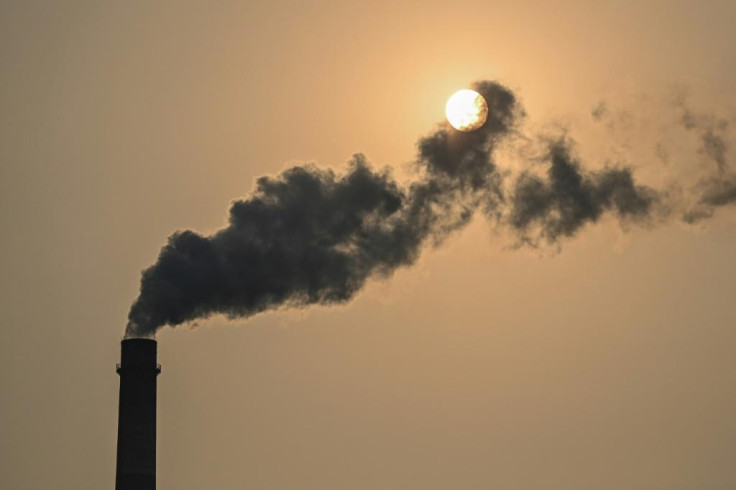Heat-Trapping Greenhouse Gases Reach Record High, Claims UN Report
The report comes ahead of this year's United Nations Climate Change Conference (COP28).

The levels of climate-heating greenhouse gases in the atmosphere reached record highs last year, according to a report by the UN's World Meteorological Organisation (WMO).
The three main greenhouse gases are carbon dioxide (CO2), methane, and nitrous oxide. CO2 is the most important, accounting for around 66 per cent of the warming effect. The report says that the concentration of carbon dioxide, the main greenhouse gas, is 50 per cent higher than what it used to be before the Industrial Revolution.
The concentrations of two other key greenhouse gases, methane and nitrous oxide, have also increased significantly over the years. The levels of Nitrous Oxide witnessed the highest year-on-year increase on record from 2021 to 2022.
"Despite decades of warnings from the scientific community, thousands of pages of reports and dozens of climate conferences, we are still heading in the wrong direction," said Prof Petteri Taalas, the WMO's secretary-general.
"The current level of greenhouse gas concentrations puts us on the pathway of an increase in temperatures well above the Paris Agreement targets by 2100," he said.
"This will be accompanied by more extreme weather [and] the socioeconomic and environmental costs will soar. We must reduce the consumption of fossil fuels as a matter of urgency".
The Paris Agreement involves keeping the increase in global average temperature well below 2°C above pre-industrial levels and limiting the increase to 1.5°C to fight climate change.
However, the United Nations has time and again warned that the world is far from achieving this goal and that more needs to be done, especially by the global north.
To limit global warming to below 2.0°C and 1.5°C, global GHG emissions must be reduced by 30 per cent and 45 per cent respectively. The UN's blunt report comes as world leaders prepare to meet in Dubai for this year's United Nations Climate Change Conference (COP28).
The report has warned that a continued increase in greenhouse gas emissions will lead to more extreme weather and wide-ranging impacts on the environment, the economy, and humanity.
Climate change and its impact:
A report by the Lancet Countdown team has claimed that the world is "paying in lives" by not taking adequate actions to address climate change.
The report said that 127 million more people were already experiencing moderate or severe food insecurity in 2021 when compared to the last 30 years.
Floods, droughts, wildfires, and excessive heat during the summer months have already become frequent due to climate change, and experts believe not enough is being done to reduce their pace.
"There is an enormous human cost to inaction, and we can't afford this level of disengagement – we are paying in lives. Every moment we delay makes the path to a livable future more difficult and adaptation increasingly costly and challenging," said Dr Marina Romanello, executive director of the Lancet Countdown at University College London.
According to another report by the UN's World Meteorological Organisation (WMO), two million people have already been killed by extreme weather, climate, and water-related events since 1970.
The effects of climate change are already being felt by small island development states (SIDS). They are among the most vulnerable countries on the planet, as rising sea levels around them are inching higher.
The UN chief has called on developing countries to support emerging economies in their fight against climate change and global warming.
It is said that developed countries are responsible for 75% of the accumulated atmospheric greenhouse gases causing climate change. The developing countries believe that the developed countries should shoulder most of the burden of reducing emissions since they are the ones who have contributed significantly to the crisis that humanity faces today.
It is said that Earth's average temperature will hit the 1.5ºC threshold around 2030, a decade earlier than projected only three years ago. The UN has urged the world to urgently take steps to stop global warming.
© Copyright IBTimes 2024. All rights reserved.






